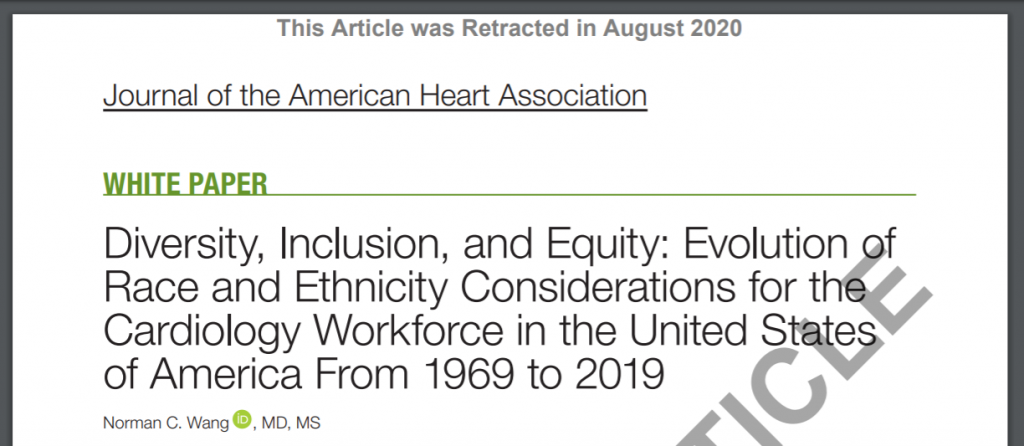
Overweight people are more dishonest, women with endometriosis are more attractive, and affirmative action needs to stop: Papers with these three conclusions have come under intense scrutiny on social media in recent days, with at least one retracted.
First up, a study — widely criticized for being sexist — which claimed to find that
Women with rectovaginal endometriosis were judged to be more attractive than those in the two control groups. Moreover, they had a leaner silhouette, larger breasts, and an earlier coitarche.
The study, called “Attractiveness of women with rectovaginal endometriosis: a case-control study” was published in 2013 in Fertility and Sterility, an Elsevier publication. It received sharp criticism on PubPeer beginning a year ago when one commenter, “Ovine Mastadenovirus,” wrote:
Continue reading A retraction and a retraction request as Twitter users call out sexism, fat-shaming, and racism







